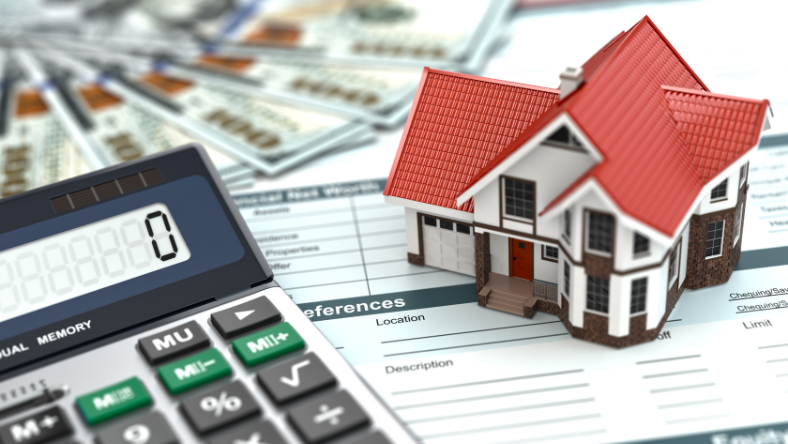For example, imagine you're buying a house for $500,000. You're putting $100,000 down; your mortgage is a $400,000 30-year fixed loan. For simplicity, these figures focus only on principal and interest and do not include other costs like property taxes, homeowners insurance, or mortgage insurance.
Consider the following rates based on this example:
| Rate | Monthly Payment (P&I) | Total Interest | Total Cost |
|---|---|---|---|
| 5% | $2,147 | $372,920 | $772,920 |
| 8% | $2,935 | $656,600 | $1,056,600 |
In this example, paying an extra 3% would result in paying $283,680 more than if your mortgage rate were 5%.
Strategies to Lower Your Mortgage Rate
Some factors are beyond your control regarding mortgage rates, such as the Federal Reserve raising rates due to current economic conditions. However, there are some strategies you can implement to ensure you're getting the best mortgage rate available.
- Boost Your Credit Score. A higher credit score can qualify you for lower mortgage rates. To improve your score, make sure to pay bills on time, keep credit card balances low, avoid applying for new credit in the months before applying for a mortgage, and check your credit report for errors.
- Maintain Adequate Cash Reserves. Liquidity in checking, savings, and investment accounts is another positive indicator for lenders, potentially decreasing your mortgage rates. Start saving as much as possible in various accounts. Maintain a solid emergency fund and healthy balances in both savings and investment accounts.
- Keep a Favorable Debt-to-Income Ratio. Lenders will examine your debt-to-income ratio, determining how much of your monthly income goes toward minimum debt payments. A high ratio will lead to a higher mortgage rate or result in lenders declining a loan altogether. For most conventional loans, lenders prefer a DTI ratio below 43%, though some may accept higher ratios under certain conditions.
- Stick to a Monthly Budget Relative to Your Income. The higher your income and flexibility in your budget, the more likely lenders will consider you a low-risk borrower. Never stretch your budget too thin by taking on a mortgage you can barely afford, as financial situations can change.
- Consider Alternative Mortgage Options. While most buyers choose fixed-rate mortgages, some opt for adjustable-rate mortgages, where interest rates fluctuate after an initial fixed period. Since these rates are variable, lenders often offer lower initial fixed-rate periods. This option could save you money compared to a fixed-rate mortgage, though it could also cost you more if rates rise.
- Compare Several Lenders. Don't settle for the first lender you come across. Just as it's smart to look at more than one home, you should shop around for lenders. Aim to get rate quotes from two to four companies, giving you various options. If you do this, ensure you submit preapproval applications within the same month so your credit score isn't negatively impacted.
- Buy Mortgage Points. Purchasing mortgage points is a strategic way to reduce your mortgage costs if you plan to pay it off over a long period. Mortgage points allow you to pay up-front costs to lower your interest rate, potentially saving you money in the long term if you hold the loan long enough.
Timing and Market Considerations
You've chosen a lender, lock in your mortgage rate to protect yourself from potential increases before closing. Rate locks typically last 30 to 60 days, though some lenders offer extensions for a fee.
If you aren't in a rush to purchase a home, consider waiting for home prices and rates to decrease. Timing your purchase in line with market conditions could save you money in the long run.
What's Next?
Securing the lowest mortgage rate can make a significant difference in your long-term financial outlook. If you're ready to explore competitive rates, Salem Five Bank provides mortgage solutions tailored to your needs. Whether you're looking to refinance, purchase a new home, or simply understand your options, their expert guidance can help you navigate the process with confidence. Take control of your mortgage journey and find the best rate for your future.
FAQs: Getting the Lowest Mortgage Rate
-
What factors determine my mortgage rate?
Mortgage rates are influenced by several factors, including your credit score, debt-to-income ratio, down payment amount, loan type, and current market conditions. Lenders also consider your financial history and employment stability when setting your rate.
-
How can I improve my credit score to qualify for a lower rate?
You can boost your credit score by paying bills on time, keeping credit card balances low, avoiding new credit applications before securing a mortgage, and reviewing your credit report for errors. A higher score often means better loan terms.
-
Are adjustable-rate mortgages (ARMs) a good option for securing a lower rate?
ARMs typically offer lower initial rates than fixed-rate mortgages, but they adjust based on market conditions after the initial period. If rates rise, your payments could increase. This option is best for buyers who plan to sell or refinance before the rate adjustment period.
-
What is a mortgage point, and how does it affect my rate?
Mortgage points are upfront fees paid to the lender in exchange for a lower interest rate. Each point typically costs 1% of the loan amount and can reduce your rate by a fraction of a percent. Buying points can be beneficial if you plan to stay in the home for a long time.
-
How do I know when to lock in my mortgage rate?
Rate locks secure your interest rate for a set period, usually 30–60 days, protecting you from potential increases before closing. If rates are rising, it’s wise to lock in early. Some lenders offer rate lock extensions if you need more time.






